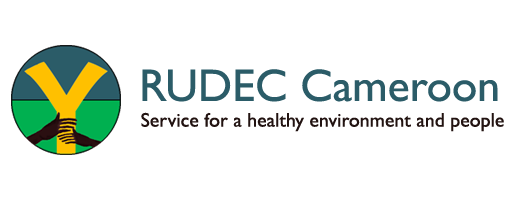FAQ
Most Common Questions
Want to Know More?
Feel free to contact us any time
Rudec primarily works in Belo, which is in the North West Province in Cameroon. To see where this is on a map, please click this link.
RUDEC was registered in February 2006 as a Common Initiative Group (CIG) – a not for profit organization as defined in the 1992 Cooperative Law of Cameroon on Cooperative Societies and Common Initiative Group.
We can accept donations either using PayPal, a wire transfer, or with a bank transfer (EU). For more information on how to send us a donation using either of these methods, please see the donations page.
RUDEC is always in search of volunteers to come and help with our programmes. We invite anyone that may be interested to fill out an application using the online form. You can find more information about what it would be like working with us on the volunteer page. Further information are available in the pdf file.
Yes. Volunteers with RUDEC are asked to pay a Project Investment Fee according to the period of time a volunteer is working with us. Project Investment fees are funds that all volunteers of RUDEC are required to contribute to help support the orphan project, which is always in need of funding. These funds go towards the immediate needs of unsponsored orphans.
No. You are free to choose the moment and durance of your collaboration with RUDEC. However, we recommend a minimum stay of one month or more. Keep in mind that the longer your stay, the greater the chance to make a difference and achieve sustainability within the local community!
Be aware that it is difficult to find mosquito repellant, sunscreen, mosquito nets, novels and some drugs. Although you can buy them, shampoo, conditioner and shower gel are expensive and only available in the nearest town, Bamenda.
When your flight arrives in Douala Airport, you will have to show your yellow fever certificate and get your passport stamped before collecting your luggage. Here you may be offered help with your bags, but always refuse as they will expect a lot of money afterwards. Joshua will meet you either in Baggage Claim or outside Customs and take you to the mission where you will spend the night. Depending when your flight arrives, you could go out for dinner and learn more about RUDEC and Cameroon.
In the volunteer house there is a cook who can accommodate your needs. Finding vegetarian food is not difficult, as Cameroonians tend to eat a lot of vegetarian food, with just a small amount of meat and fish. Dairy is not commonly found or used in Belo, although if you look very hard it is possible to find unpasteurized milk and cheese from the Fulani herdsman. Powdered milk is easily available in Belo, and butter, yoghurt and ice cream can be found in Bamenda.
RUDEC volunteers live in the volunteer house, a 2 minute walk from the centre of Belo. The house has 3 bedrooms, 2 bathrooms, a kitchen and a large dining and living area. There is electricity and running water, but not hot water. Belo occasionally suffers from water shortages or power cuts. The modern house is in a secure area.
Rent for volunteer house is 30,000 CFA This includes bills such as electricity and water, but gas must be bought on top (7000-9000 CFA for a canister, only used for cooking). The wage of the cook is 30,000 CFA to be split between the volunteers in the house. Most of the food is bought once every 8 days at the market, which is a great experience and fun to try to haggle with the local traders in Pidgin! Food shopping should cost around 5000-6000 CFA for 8 days per person.
Visa cards (but not Mastercard) can be used at ATMs in larger towns in Cameroon. Belo’s nearest ATM is in Bamenda. Credit cards can only very rarely be used to pay for goods or services, apart from large international hotels in cities such as Douala and Yaoundé or tourist towns like Limbé and Kribi.
Contact the Cameroonian embassy in your home country to obtain a visa. Either 3 month or 6 month visas are available, and usually you must provide proof of flights, travel insurance and an invitation letter (which RUDEC will email you).
The North West Region is one of the most beautiful in Cameroon and there are lots of opportunities for hiking, visiting waterfalls and crater lakes. You can see the local Fon’s palace, and take a tour around Ndawara Tea Plantation, the largest in West Africa.
Useful items include a nailbrush, torch (flashlight), sleeping bag, towel, hiking boots, trainers and durable clothes. In the dry season (November-March) a warm jumper is advisable, and in the wet season (March-October), an umbrella or waterproofs and waterproof shoes. Bringing antimalarial medication, a mosquito net, sunscreen and insect repellent is a good idea as well as books, a spare phone, money belt, penknife (for the corkscrew and bottle opener!), a small first aid kit (there is a health centre in Belo and a hospital in the area but plasters, paracetamol, antiseptic wipes etc.
Belo is generally safe and peaceful, everyone is very friendly and you will get to know the locals quickly. You will visit officials upon arrival to make them aware of your presence in Belo. You will have keys to lock the house and each bedroom. Be careful of letting people you don’t know into the house after dark, even though they are probably just being friendly. If you have any problems or questions, Joshua is always on hand to sort it out.
There are several internet cafes in the centre of Belo which cost around 400 CFA for 1 hour. Unfortunately there is not internet access at the RUDEC Office yet, but we’re working on it! But please be aware that internet can be extremely slow and frustrating sometimes.
